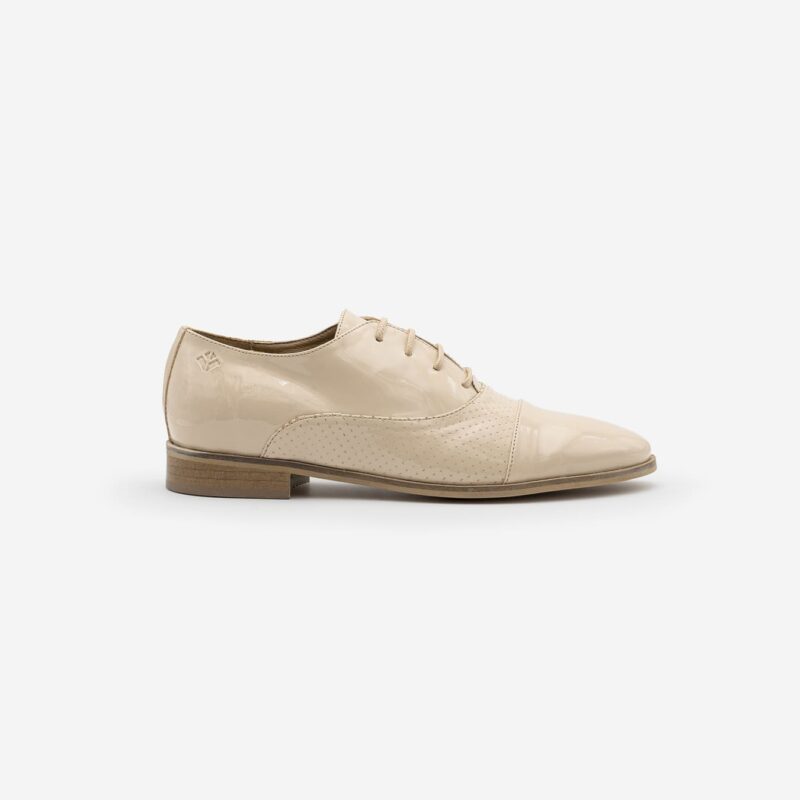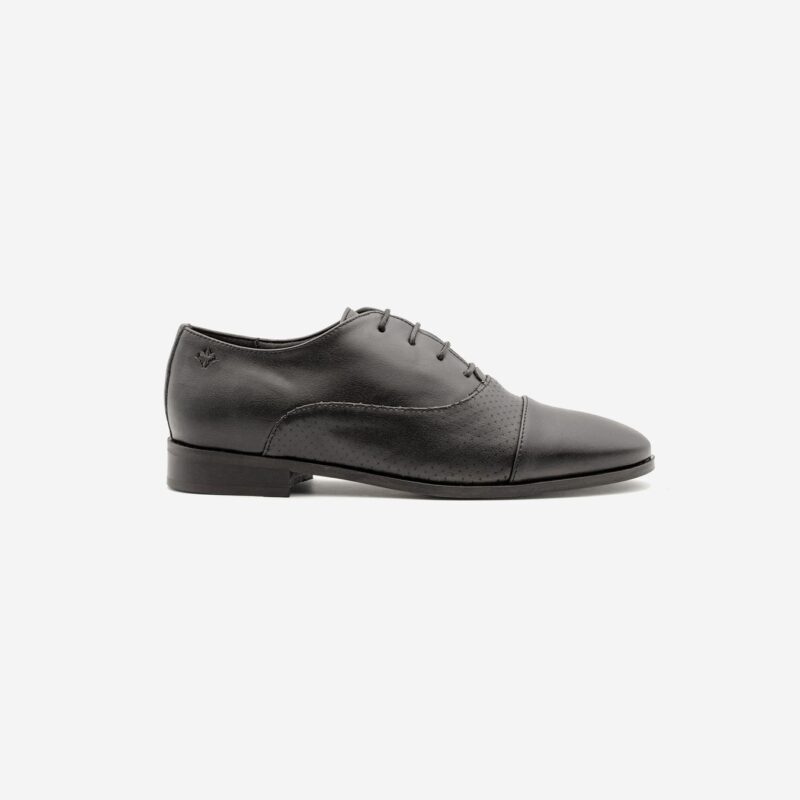
Blog
Exploring the Social Impact of Supporting Sustainable Shoe Brands

As the demand for sustainable fashion continues to grow, ethical is becoming a powerful force driving change in the industry. Consumers are increasingly seeking brands that align with their values and prioritize social and environmental responsibility. In the realm of footwear, sustainable shoe brands have emerged as leaders in promoting ethical practices and reducing the environmental footprint of shoe production.
But what is the real impact of supporting these sustainable shoe brands? Is it just a trend or does it truly make a difference? How do they ensure their business practices are truly sustainable and socially responsible?
In this article, we will dive deep into the social impact of supporting sustainable shoe brands. We will explore the concept of ethical consumerism and its role in shaping the fashion industry. We will also examine the sustainable business practices adopted by these brands and how they contribute to reducing the environmental footprint of shoe production. Additionally, we will uncover the initiatives taken by sustainable brands to ensure ethical supply chain management and drive positive change in the fashion industry.
Join us on this journey to discover the transformative power of sustainable shoe brands and their role in creating a more socially and environmentally conscious fashion industry.
Key Takeaways:
- Sustainable shoe brands are driving change in the fashion industry through ethical consumerism.
- These brands prioritize social and environmental responsibility in their business practices.
- Eco-friendly footwear and reduced environmental footprint are key focuses for sustainable shoe brands.
- Ensuring ethical supply chain management is a core initiative for sustainable brands.
- Supporting sustainable shoe brands contributes to a more sustainable and socially responsible fashion industry.
The Rise of Sustainable Shoe Brands
In recent years, there has been a significant rise in the popularity of sustainable shoe brands. Consumers are becoming increasingly conscious of the social and environmental impact of their purchasing decisions, leading to the emergence of ethical consumerism. As a result, sustainable shoe brands are gaining traction in the fashion industry, offering eco-friendly footwear options that align with consumers’ values.
Ethical consumerism is a growing trend where individuals prioritize supporting businesses that uphold sustainable business practices and make a positive social impact. By choosing to purchase from sustainable shoe brands, consumers are actively contributing to a more sustainable fashion industry.
What sets sustainable shoe brands apart is their commitment to reducing their environmental footprint. These brands employ various sustainable business practices throughout the entire shoe production process. From using recycled materials and innovative manufacturing techniques to minimizing water and energy consumption, they are paving the way for a more eco-friendly approach to footwear production.
Moreover, sustainable shoe brands recognize the importance of social responsibility in the fashion industry. They prioritize fair labor practices, ensuring that workers are treated ethically and provided with safe working conditions. These brands also promote transparency and accountability in their supply chains, making it easier for consumers to make informed choices.
“Supporting sustainable shoe brands goes beyond just a fashion statement. It’s a conscious decision to make a positive social impact and contribute to a more sustainable future.”
By supporting sustainable shoe brands, consumers are driving positive change and contributing to the social impact of these brands. It encourages other companies in the industry to adopt more sustainable practices, creating a ripple effect that extends beyond the world of fashion.
Together, consumers and sustainable shoe brands can strive towards a more ethical and sustainable fashion industry, one step at a time.
| Sustainable Shoe Brands | Social Impact |
| 1. Allbirds | Donates shoes to communities in need |
| 2. Veja | Sources materials responsibly and supports fair trade |
| 3. TOMS | Provides shoes, sight restoration, and clean water to people in need |
Sustainable Practices in Shoe Production
As the fashion industry increasingly prioritizes sustainability, shoe brands are adopting various sustainable practices to reduce their environmental footprint. These practices not only contribute to the overall sustainability of the fashion industry but also promote the production of eco-friendly footwear.
One of the key strategies employed by shoe brands is the use of eco-friendly materials. Instead of traditional materials that have a negative impact on the environment, such as leather or synthetic fabrics, these brands opt for sustainable alternatives. This includes using recycled materials, organic cotton, and plant-based materials.
In addition to eco-friendly materials, shoe brands also implement recycling programs in their production processes. They collect and recycle old or defective shoes to reduce waste and minimize the consumption of raw materials. By diverting shoes from landfills and repurposing their components, these brands contribute to a more circular economy.
Innovations in Shoe Production
Shoe brands are also embracing innovative techniques to reduce water and energy consumption in their manufacturing processes. Water is a precious resource, and the fashion industry has historically been a significant consumer of it. However, sustainable shoe brands are implementing water-saving technologies and practices, such as using waterless or low-water dyeing methods.
Furthermore, energy-efficient manufacturing processes are being adopted to minimize the carbon footprint of shoe production. This includes using renewable energy sources, optimizing equipment and machinery to reduce energy consumption, and implementing energy-saving measures throughout the production chain.
The Environmental Impact of Sustainable Practices
By adopting these sustainable practices, shoe brands are making a significant positive impact on the environment. They are reducing the use of harmful materials, minimizing waste through recycling programs, and conserving valuable resources like water and energy. All these efforts add up to a reduction in the environmental footprint of shoe production.
Table:
| Sustainable Practices in Shoe Production | |—————————————-| | – Use of eco-friendly materials | | – Recycling programs | | – Water-saving techniques | | – Energy-efficient manufacturing | | processes |
Implementing sustainable practices in shoe production is not only crucial for reducing the environmental impact of the fashion industry but also for meeting the growing consumer demand for eco-friendly footwear. By supporting these brands, consumers can contribute to a more sustainable future while enjoying stylish and ethical footwear choices.
Social Responsibility and Ethical Supply Chain Management
Social responsibility holds significant importance in the fashion industry, and sustainable shoe brands are leading the way in ensuring ethical supply chain management. These brands recognize the need to prioritize fair labor practices and worker welfare, as well as the importance of transparency in the supply chain. By adopting stringent ethical standards, they are making a positive impact on both people and the planet.
One key aspect of social responsibility in fashion is ensuring fair labor practices. Sustainable shoe brands actively collaborate with their suppliers and manufacturers to ensure that workers receive fair wages, work in safe conditions, and are treated with respect and dignity. These brands understand that a fair and safe working environment is the foundation for the social wellbeing of the communities involved in the production process.
Worker welfare is also a crucial consideration. Sustainable shoe brands prioritize the health, safety, and welfare of their workers by providing appropriate training, access to healthcare, and fair working hours. By valuing the wellbeing of their employees, these brands create a positive and empowering work environment, which fosters long-term sustainability and growth.
“Transparency is key in the fashion industry.”
Transparency is key in the fashion industry. Sustainable shoe brands understand the significance of sharing information about their supply chain, including the origin of materials and the manufacturing processes involved. By being transparent, these brands enable consumers to make informed choices and align their values with the products they purchase. This transparency also encourages accountability and fosters trust between brands and consumers.
In addition to upholding social responsibility, sustainable shoe brands are taking innovative initiatives to promote social impact. They actively engage in collaborations with local artisans and communities, supporting craftsmanship and preserving cultural heritage. Furthermore, these brands invest in education and skill-building programs, empowering individuals and communities by creating employment opportunities and fostering economic growth.
Examples of Sustainable Brand Initiatives:
- ABC Shoes runs a mentorship program that provides vocational training and empowers disadvantaged youth to pursue careers in shoemaking.
- DEF Footwear partners with local artisans to create unique designs while preserving traditional craftsmanship and promoting cultural diversity.
- GHI Sneakers actively supports women’s empowerment initiatives and provides scholarships to girls pursuing education in STEM fields.
The commitment of sustainable shoe brands to social responsibility and ethical supply chain management not only benefits individuals and communities but also contributes to a more sustainable and ethical fashion industry as a whole. By making conscious choices and supporting these brands, consumers play an essential role in driving positive social change and promoting a fashion industry that values both people and the planet.
| Benefits of Social Responsibility and Ethical Supply Chain Management | Examples |
| Improved worker welfare and fair labor practices | ABC Shoes mentorship program empowers disadvantaged youth |
| Transparency and accountability in the supply chain | DEF Footwear promotes traditional craftsmanship |
| Preservation of cultural heritage | GHI Sneakers supports women’s empowerment initiatives |
| Economic growth and empowerment of communities |
Conclusion
In conclusion, supporting sustainable shoe brands has a significant social impact and plays a crucial role in transforming the fashion industry towards greater sustainability. The rise of ethical consumerism has driven the demand for eco-friendly footwear and sustainable business practices. By choosing to prioritize sustainability in our purchasing decisions, we contribute to reducing the environmental footprint of shoe production and promoting social responsibility in the fashion industry.
Sustainable shoe brands have taken proactive steps to ensure ethical supply chain management, establishing fair labor practices and worker welfare. They have embraced transparency, allowing consumers to make informed choices and support brands that align with their values. Through their initiatives, these brands have showcased the positive changes that can be achieved in the fashion industry, paving the way for a more socially and environmentally responsible future.
As consumers, we have the power to make a difference. By opting for sustainable shoe brands, we can support their initiatives and encourage others to follow suit. Our choices have a ripple effect, inspiring more brands to adopt ethical practices and sustainable business models. Together, we can create a fashion industry that prioritizes social impact, environmental consciousness, and ethical consumerism, ensuring a brighter and more sustainable future for all.
FAQs
The history of sustainable footwear dates back to the early beginnings of eco-friendly practices and materials in the industry. It has evolved over time with innovations in eco-friendly shoe manufacturing and the introduction of sustainable shoe materials.
Sustainable shoe brands are gaining popularity due to the rise of ethical consumerism. Consumers are becoming more conscious of the social and environmental impact of their purchasing decisions. By choosing sustainable shoe brands, they are supporting positive change in the fashion industry and making a difference in terms of social responsibility and environmental sustainability.
Sustainable shoe brands implement various practices to minimize their environmental footprint. They use eco-friendly materials, employ recycling programs, and strive to reduce water and energy consumption in their production processes. These practices contribute to a more eco-friendly and sustainable fashion industry.
Sustainable shoe brands prioritize social responsibility by ensuring ethical supply chain management. They promote fair labor practices, prioritize worker welfare, and emphasize transparency in their supply chain. By supporting these brands, consumers can contribute to a more sustainable and ethical fashion industry.
Supporting sustainable shoe brands has a significant social impact. By choosing these brands, you can actively contribute to transforming the fashion industry towards greater sustainability and promote ethical consumerism. Your purchasing decisions can support positive social and environmental change by encouraging sustainable business practices and responsible supply chain management.





